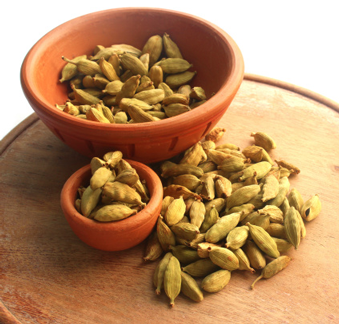
Ayurveda, the “Sister Science of Yoga” and the traditional medicine of India, has a deep understanding of the connections between all that exists in the universe. This natural healing system emphasizes prevention of imbalances and illnesses, offers natural individualized therapies, and empowers everyone to take responsibility for their own health and well-being. Their guiding principles are as relevant today as they were 5000 years ago.
Ayurveda means the “knowledge or the science of life”- It is a holistic and nature based medical system that considers the mind, body, senses, and soul in the healing process. Ayurveda understands that Mother Nature has cycles and rhythms which govern all of life which means we as human beings are governed by these same principles. Our health and well-being are dependent upon aligning ourselves with nature’s cycles and rhythms. If we live against her principles, imbalances will begin to appear. The imbalances are the beginnings of disharmony and disease in the body and mind.

Ayurveda teaches that each of us has a unique mind-body-spirit constitution. When our constitution is in balance we are healthy and well. When out of balance, we can experience a number of conditions which can eventually lead to disease. Ayurveda looks for the root causes of our conditions and offers natural ways to help restore balance through the use of proper diet, herbs and spices, daily routines, exercise, and natural therapies all designed around the unique needs of the individual.
“Individual wellness comes from Within.
The power of healing is infinitely within ourselves.
The center of our own self is the best place we can be.”
– Mother Maya Tiwari


But most of all, Ayurveda will teach us peace and how to live in harmony with ourselves and others.
-Atreya
Ayurveda focuses on the ” Pillars of Health”: Food, Sleep, Exercise all geared to the specific needs of each individual, their current conditions and the current season.

No medication, no herb, no supplement will replace these pillars when it comes to balancing our bodies and minds although they can help and are often needed. Yet, it is the way we live day in and day out that matters the most. This means the food we eat, the company we keep, and the way we live all have a tremendous influence on our minds and bodies. Another of Ayurveda’s grounding philosophy states that all things in existence are made up of the five elements of ether or space, air, fire, water and earth. These elements are the building blocks for all that is contained within matter including nature herself as well as our physical bodies. They are the reason for our form, how the mind works, the energy we have, and how we move, think, and feel.
All things in life are influenced by the five elements and the qualities associated with them. All living beings are made up of these 5 elements in slightly different proportions. This makes each of us unique with individual needs regarding diet and lifestyle.
The elements have qualities associated with them such as heavy, light, cold, hot, oily, dry, smooth, and rough that Ayurveda looks very closely at when examining imbalances in the body.
The elements with their qualities make up the Doshas -Vata, Pitta, and Kapha. The Doshas are the three metabolic types which govern the unique psychophysiology of the individual. All functions of our minds and bodies are dependent upon the balanced or unbalanced state of the doshas.
When diet is wrong, medicine is of no use.
When diet is correct, medicine is of no need.
-Ayurvedic Proverb

Vata
Vata is a combination of air and space and means “that which moves things”.

- Vata governs the energies of the nervous system, the rhythms of the body, respiration, and all movement within the body and mind.
- Vatas tend to be light in structure and may find it difficult to gain weight.
- Vata in balance is joyful, creative and filled with ideas. When out of balance the air quality can create instability, poor digestion, sleep problems and psychological problems.
- It’s important to know that Vata usually goes out of balance first. This means that the nervous system is disturbed which can cause the early stages of disease. Balancing Vata is always addressed in an Ayurvedic consultation.
- Vatas need to get plenty of rest, stay warm, have a consistent daily routine, and not overdo things.
- Keyword: changeable
- Main site in the body: colon
- Season: Fall/Early Winter
- Examples: hummingbird, hurricane, bamboo, Woody Allen, Olive Oil, popcorn
- Tastes associated with air and space – bitter, astringent, pungent-may cause imbalance
- Tastes to emphasize to help balance – sweet, sour, salty
Pitta
Pitta is a combination of fire and water and means “that which digests things”.

Pitta is related to agni, the digestive fire, and governs metabolism, maintaining the body temperature, and processing on all levels. Pitta is that which transforms things whether it’s turning food into energy and nutrients or transforming thoughts, experiences, and emotions. Our ability to see clearly is dependent upon a healthy digestive process.
- Pittas are of medium build, and in balance are warm, friendly, ambitious, and outgoing.
- Out of balance due to the fiery nature Pitta can become critical, prone to anger, or demanding and experience indigestion, ulcers and skin problems.
- Pittas need moderation and to be mindful of pushing too much and not overheating.
- Keyword: Intense
- Main site in the body: small intestine
- Season: Summer
- Examples: tiger, sun, volcano, rose, Rhett Butler, chili peppers
- Tastes associated with fire and water – sour, salty, pungent (spicy) may cause imbalances
- Tastes to be emphasized to balance – sweet, bitter, and astringent
Kapha
Kapha is a combination of water and earth and means “that which holds things together”.

Kapha is responsible for the structure of the body and controls the moist tissues. It’s main functions are support, nourishment, lubrication, strength, stamina and physical growth.
- Kapha type people tend to have a heavy, sturdy frame with large bones. They have sweet, gentle natures, are calm and stable and have good stamina. Out of balance Kapha can become stubborn and lethargic and are prone to depression, congestion and respiratory problems.
- Kaphas need stimulation, lots of exercise and to be careful not to overeat.
- Keyword: relaxed
- Main site in the body: stomach
- Season: late Winter/ Spring
- Examples: elephant, moon, oak, avalanche, Winnie-the-Pooh, Charlie Brown
- Tastes associated with earth and water – sweet, salty and sour – may cause imbalances:
- Tastes needed to be emphasized to balance: bitter, astringent, pungent

“I came to Deborah dealing with physical challenges that I had tried many healing traditions to address. I have a background in yogic practices and western herbs, yet felt I needed a skillful and perceptive presence to guide me. My work with her has touched me in deepening my path of wellness. The energy that stands out for me about Deborah is LOVE. She is a conduit for grounded, Earthly Love, the same presence of that the Ayurvedic tradition springs from. Compassion and Love are the ultimate healers and Deborah is a wellspring of this sacred source. Many blessings and thanks.”
-S.L.

